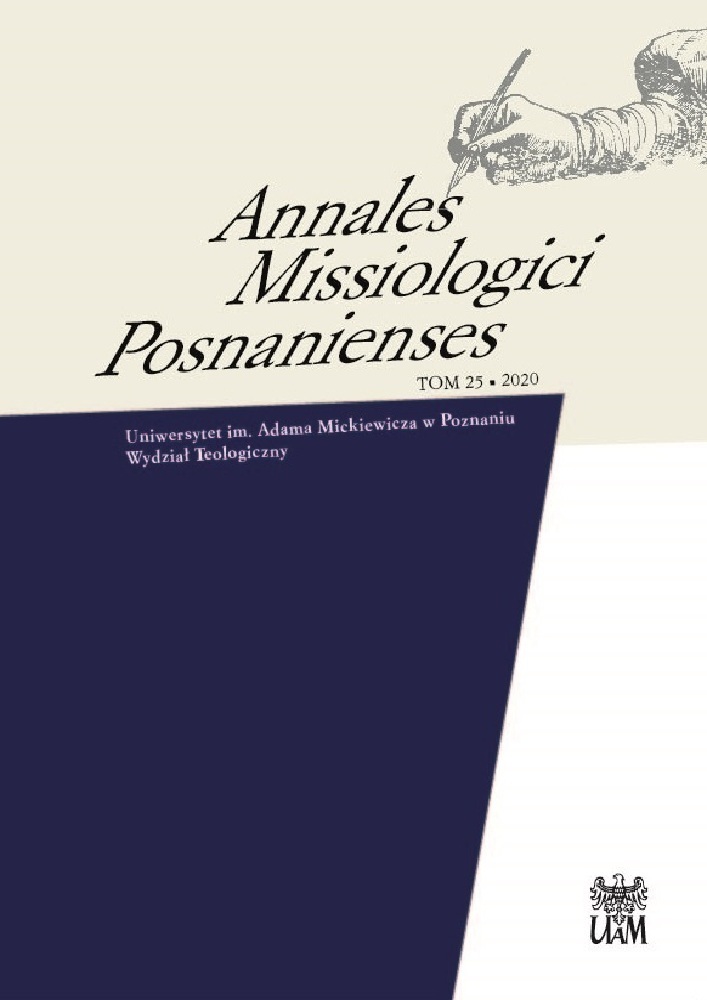Abstrakt
This article reflects on the sixty years marking the anniversary of the encyclical letter Miranda Prorsus by Pope Pius XII. Miranda Prorsus was the first document written in 1957 by the Church to refl ect on the three important means of communication: Motion Pictures (Film), Television (TV) and Radio. It highlighted the importance of these “remarkable technical inventions” to aid humanity in as far as development and understanding the media was concerned. Each of these three instruments of communication is examined in both the strengths and weaknesses they carry, but much more, how they can play a role in advancing humanity in the area of morality and truth telling. The article tries to use some of the important highlights in the context of Zambia my country that has embraced these means of communication with radio stations set up by the respective Bishops and a Television soon to be launched by the Zambia Conference of Catholic Bishops (ZCCB). In retrospect the article tries to show how these means and technical inventions can become handy in as far as the evangelization is concerned.
Bibliografia
Djokotoe, Edem. An Issue-based Journalism Handbook. Lusaka: MISA Zambia Publications, 2004.
Makungu, M. Kenny. The State of the Media in Zambia – From the Colonial Era to 2003. Lusaka: MISA Zambia Publication, 2004.
MISA Zambia (2017). State of the Media in Zambia for the First Quarter (January – March). Lusaka: MISA Publication, 2017.
Movement for Multi-Party Democracy – MMD (2001). MMD Manifesto. Lusaka: Self-Published, 2001.
Pius XII. Encyclical Letter – Miranda Prorsus: The Cinema, Sound Broadcasting and Television. London: Catholic Truth Society, 1957.
Licencja
Prawa autorskie (c) 2020 Freeborn Kibombwe

Utwór dostępny jest na licencji Creative Commons Uznanie autorstwa – Bez utworów zależnych 4.0 Międzynarodowe.
PRACE PUBLIKOWANE W CZASOPIŚMIE DOSTĘPNE SĄ NA LICENCJI CREATIVE COMMONS:
Przed 2006 do wszystkich tekstów opublikowanych prawa autorskie są zastrzeżone.
Autorzy
Autorzy tekstów przyjętych do publikacji w czasopiśmie Annales Missiologici Posnanienses są zobowiązani do wypełnienia, podpisania i odesłania na adres redakcji umowy o udzielenie nieodpłatnej licencji do utworów ze zobowiązaniem do udzielania sublicencji CC.
Zgodnie z umową, autorzy tekstów opublikowanych w czasopiśmie Annales Missiologici Posnanienses udzielają Uniwersytetowi im. Adama Mickiewicza w Poznaniu niewyłącznej i nieodpłatnej licencji Creative Commons Attribution-NonCommercial-NoDerivatives 4.0 International (CC BY-NC-ND 4.0) oraz zezwalają na sublicencje na tych samych warunkach.
Autorzy zachowują prawa do dalszego, swobodnego rozporządzania utworem.
Użytkownicy
Zainteresowani użytkownicy internetu uprawnieni są do korzystania z utworów opublikowanych od 2021 roku w Annales Missiologici Posnanienses pod następującymi warunkami:
- uznanie autorstwa – obowiązek podania wraz z rozpowszechnionym utworem, informacji, o autorstwie, tytule, źródle (odnośniki do oryginalnego utworu, DOI) oraz samej licencji;
- użycie niekomercyjne – nie należy wykorzystywać utworu do celów komercyjnych;
- bez tworzenia utworów zależnych – utwór musi być zachowany w oryginalnej postaci, nie można bez zgody twórcy rozpowszechniać np. tłumaczeń, opracowań.
Zainteresowani użytkownicy internetu uprawnieni są do korzystania z utworów opublikowanych w latach 2006-2020 w Annales Missiologici Posnanienses pod następującymi warunkami:
- uznanie autorstwa – obowiązek podania wraz z rozpowszechnionym utworem, informacji, o autorstwie, tytule, źródle (odnośniki do oryginalnego utworu, DOI) oraz samej licencji;
- bez tworzenia utworów zależnych – utwór musi być zachowany w oryginalnej postaci, nie można bez zgody twórcy rozpowszechniać np. tłumaczeń, opracowań.
Inne
Uniwersytet im. Adama Mickiewicza w Poznaniu zachowuje prawo do czasopisma jako całości (układ, forma graficzna, tytuł, projekt okładki, logo itp.).



